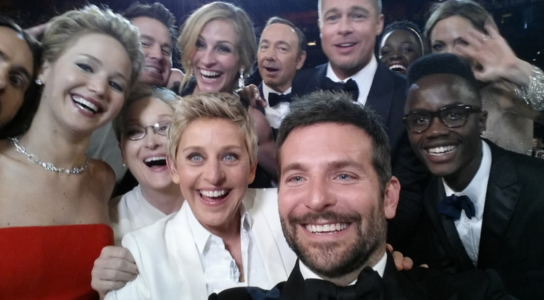
Can social media predict the future?

At MintTwist, we've developed a proprietary algorithm that uses social media to predict the winners of popular voting contests such as the Eurovision or X Factor.
Most recently we looked at whether you can predict the winner of the Oscars using social media and got 4/5 of our predictions correct. 2014 is Facebook's 10 year anniversary. In just a decade, the social networking giant has transformed the way people communicate and paved the way for countless other networks and a whole industry to develop. What does this mean for social media and society? For business owners? Politicians? Can social media predict the future?Social media growth and trends
In an infographic published in November 2013, Search Engine Journal highlighted just how ubiquitous social media has become:- If Facebook was a country, it'd be the world's third largest country with 1.15 billion users
- 72% of internet usage is spent on social network websites
- 1 million web pages allow you to log in with Facebook
- 47% of Facebook users say Facebook is their main influencer of purchases
Social media prediction case studies
Predicting the Oscars with social media
 For predicting the Oscars we looked at several social metrics and then combined them with past award season performance to predict who the winners would be of the four acting awards and best picture.
This prediction was more challenging due to the private nature of many actors - so few of the nominations have official social media accounts. The voters are also made up of a specific audience - not mass popularity.
We predicted that The Wolf of Wall Street would win Best Picture but it missed out to 12 Years a Slave. The Wolf of Wall Street had such a strong social media presence it really would have won based on social media.
What was most interesting was that the film industry, for the most part, relies heavily on traditional marketing.
Out of this year's Best Picture nominations, only American Hustle had a noteworthy digital marketing strategy that went beyond setting up a Facebook page. Some of the nominated films didn't even have an official Twitter account!
Increasingly we are seeing films - particularly those aimed at younger audiences - focus entirely on social media and digital marketing as being a core part of their marketing campaign.
The Hunger Games, as we have analysed before, do this to great effect.
For predicting the Oscars we looked at several social metrics and then combined them with past award season performance to predict who the winners would be of the four acting awards and best picture.
This prediction was more challenging due to the private nature of many actors - so few of the nominations have official social media accounts. The voters are also made up of a specific audience - not mass popularity.
We predicted that The Wolf of Wall Street would win Best Picture but it missed out to 12 Years a Slave. The Wolf of Wall Street had such a strong social media presence it really would have won based on social media.
What was most interesting was that the film industry, for the most part, relies heavily on traditional marketing.
Out of this year's Best Picture nominations, only American Hustle had a noteworthy digital marketing strategy that went beyond setting up a Facebook page. Some of the nominated films didn't even have an official Twitter account!
Increasingly we are seeing films - particularly those aimed at younger audiences - focus entirely on social media and digital marketing as being a core part of their marketing campaign.
The Hunger Games, as we have analysed before, do this to great effect.
Predicting the Eurovision with social media
 For predicting the Eurovision, we collated a wider range of social media metrics to be used as part of the algorithm. It is important to note that merely looking at the numbers will often lead to mistakes in the predictions.
Just because an act has several thousand followers on Twitter does not mean they are going to storm to victory - far from it in fact.
We can also see this in shows like the X Factor where the acts that grow their social media following the most (often the young male acts that court the teenage fangirl masses) do not necessarily win.
This will be the third year we will predict the Eurovision through social media and the first iteration of the algorithm was not nearly as accurate as the second. For 2013 we gave more/less weighting to specific metrics and got a much more accurate prediction.
Although, as with all live televoting events you cannot predict what will happen on the night and 2013 was a lot closer than anticipated.
For predicting the Eurovision, we collated a wider range of social media metrics to be used as part of the algorithm. It is important to note that merely looking at the numbers will often lead to mistakes in the predictions.
Just because an act has several thousand followers on Twitter does not mean they are going to storm to victory - far from it in fact.
We can also see this in shows like the X Factor where the acts that grow their social media following the most (often the young male acts that court the teenage fangirl masses) do not necessarily win.
This will be the third year we will predict the Eurovision through social media and the first iteration of the algorithm was not nearly as accurate as the second. For 2013 we gave more/less weighting to specific metrics and got a much more accurate prediction.
Although, as with all live televoting events you cannot predict what will happen on the night and 2013 was a lot closer than anticipated.